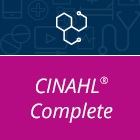Nursing & Health Sciences Research Journal
Abstract
Introduction: Many outpatient dialysis centers have transitioned to long-acting erythropoietin-stimulating agents (ESAs). However, upon admission to a hospital, long-acting ESAs are often overlooked during the medication reconciliation process, leading to therapeutic duplications and increased hospital expenditures. The purpose of this quality improvement project was to evaluate the financial impact of pharmacist prospective review and assessment of outpatient ESAs and appropriate scheduling during a hospital stay. Methods: This was a single-centered, prospective chart review of dialysis patients with initial ESA orders that took place in a non-profit community hospital in South Florida from January to March 2024. The pharmacist reviewed inpatient ESA orders for dialysis patients and then assessed outpatient administration of long-acting ESAs by interviewing the patient or through chart review. The primary outcome was examining the percentage of inpatient ESA orders rescheduled to avoid therapy overlap. The secondary outcome was the cumulative units of epoetin alfa saved and the drug cost avoided. Results: A total of 102 initial ESA orders were screened, and 62 orders met the inclusion criteria. Of the 62 orders, 21 (34%) qualified to be rescheduled based on the patient’s last long-acting ESA administration date. In total, 190,000 units of epoetin alfa were saved, resulting in direct drug cost savings of $1,733.52. Discussion: The findings of this project indicate that correctly scheduling inpatient ESA orders based on the patient’s most recent outpatient long-acting ESA administration reduces the amount of medication needed, reduces cost, and prevents therapeutic duplications.
Recommended Citation
Falcon, R., Dittmar, E., Gopalani, R., Palma, S., Clarke, H., Wine, J., & Martinez, L. (2024). Optimization of Long-acting Erythropoietin Stimulating Agents in Dialysis Patients During Transitions of Care to a Community Hospital. Nursing & Health Sciences Research Journal, 7(1), 176-181. https://doi.org/10.55481/2578-3750.1199
Creative Commons License

This work is licensed under a Creative Commons Attribution-NonCommercial-No Derivative Works 4.0 International License.


